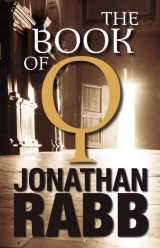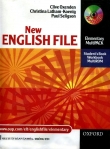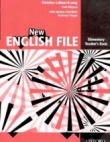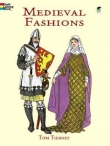
Текст книги "The Book of Q"
Автор книги: Jonathan Rabb
Жанр:
Триллеры
сообщить о нарушении
Текущая страница: 10 (всего у книги 28 страниц)
three
Giacomo Cardinal Peretti sat silently across from the canopied bed, the slight figure of Boniface X lying peacefully under white linen, head propped gently atop a single silk pillow. The room-three hours ago empty save for the two of them-now swarmed with doctors, security, clerics, lawyers, each caught up in whispered conversations, a collection of nuns kneeling in prayer, oblivious to the hushed activity. Peretti had been the last to speak with him, the last to hold his hand, his friend of forty years offering a final word of warning before drifting off: “Watch yourself, Gigi. Von Neurath wants to sleep in this bed more than you know.” A quiet smile, and then gone.
Peretti hadn’t needed the reminder, the halls even now alive with talk, his private secretary having brought him updates on two separate occasions as to the already-vigorous “campaigning”-none of it permitted by canon law, all of it greedily devoured by the Vatican’s inner circles. No more than three hours since Ezio’s death, and the politicking was well under way. The thought sickened him.
He stared at the ashen face, the high forehead dusted with tufts of gray-white hair, lips with a tinge of blue that matched the veins in his ears. The once-lined face seemed somehow smoother, even the neck taut under a stifling collar. The perfect facade for a spiritless body. Insignificant amid the self-serving swirl of motion all around him.
Peretti knew he had limited time with his old friend. The Cardinal Camerlengo-representing one of the more macabre offices within the church-would be arriving within the hour to lock up the private apartments, break the papal seal, and start the preparations for the novemdieles, the nine days of mourning. He had already announced that the conclave would meet on the ninth day, much sooner than was usual, but certainly within his authority to decide. Most thought it was because the current Camerlengo, Antonio Cardinal Fabrizzi, was in his late seventies, eager to make his interregnum stewardship as short as possible. Peretti had other ideas. Fabrizzi was one of von Neurath’s longtime allies.
“I need all of you to leave,” Peretti said quietly, loudly enough, though, to bring a sudden silence to the room. One of the security men started to answer, but Peretti raised his hand. “Just a few minutes. I’m sure he’ll still be here when you get back.” He remained seated, eyes fixed on the body, face devoid of expression.
The nuns were the first to go, crossing themselves as they stood, each turning to Peretti with a gentle nod before heading for the door-Carmelite sisters, ever mindful of a cardinal’s wishes. A slow trickle of lawyers and doctors soon followed, the two or three security men the last to leave. Finally alone, Peretti stood and walked to the bed. Again, he stared into the lifeless face, hoping for some reassurance. He half-expected the eyes to open, a naughty smile to creep across the lips. “Gone at last,” Ezio would say, a wink, spindly legs springing to the floor.
Peretti knelt at his side, his head drooped in prayer.
“What were you so concerned with on Athos, Itzi?” He looked up and gazed at the serene face. “And why did you go without telling me?”
Angeli moved to the kitchen table, two cups of coffee in hand. She passed one to Pearse, then sat, the tale of the Austrian having required another pot.
“On the other hand,” she said, doing her best to convince both him and herself, “the men from security might simply have been that-men from security. They might actually have been trying to recover something they thought could be a threat to the church. A bit more aggressively than one would have expected, but still-”
“No.” Pearse shook his head, staring into the coal black of his cup. “Even if you dismiss Cesare and Ruini-and I’m not saying you can-think about who would want the scroll.” He placed the cup on the table and looked at her. “There are two possibilities. One, someone who hears about its discovery, tracks it down, and then does what you did-decodes the map and uncovers the link to Athos. At that point, he’d realize the prayer is only a first step, not the ultimate prize. He’d also realize that he doesn’t need it anymore-he’d already have the information necessary to get him to Athos, before anyone else, and retrieve whatever is there. So even if he were to lose the scroll, there’d be no reason for him to hunt it down.”
“True,” she conceded.
“Or two,” he continued, “someone who hears about it, but who never gets his hands on it, and therefore never has a chance to decode it. No decoding, no map. No map, and the prayer-in his eyes-would fall into the category of intriguing pieces of parchment rumored to exist, but lost to the ages. At best, he might do a little academic poking around to see if it wasn’t all a hoax.
“Neither possibility, however, would prompt the kind of zeal our Vatican friends have displayed. Unless”-he leaned in over the table-“they knew it was a map beforethey’d heard about the discovery, a map to something worth a great deal to them. The question is, given what you’ve told me, how would anyone, except a Manichaean, know that?”
“I see.” She let the words sink in before responding further. “No, you’re right. No one has ever thought of the ‘Perfect Light’ as a map. No one couldhave, given that there’s never been a written copy of it before.”
“So the only person who would go to such lengths for the scroll,” he concluded, “is someone who would have known it’s a map before the written version had ever been found.”
“And that,” she admitted, “limits the field considerably.”
The silence that followed only brought home the enormity of what they were saying. After a few moments, she spoke. “It would mean that those men from the Vatican are a part of something that dates back over seventeen hundred years.”
“It would also mean,” he added, “that, considering they’re still after the scroll, they have no idea where it leads. That’s why they’re so eager to get their hands on it.” Again, silence. Pearse took a long sip of coffee. “I suppose that gives me something of a head start.”
“What?” When he didn’t answer, she said, “You can’t be serious. If what you say is true about Ruini and this monk friend of yours, we have to take this-”
“To whom?” His conversation with Dante-had it really only been yesterday? – flooded back. “No one outside this room is likely to see a link between the confirmed heart attack of a priest and a fifteen-hundred-year-old acrostic, much less the unconfirmed disappearance of a monk and the promise of something older than the Gospels somewhere in Greece. Even the church would be hard-pressed-” He stopped, the sudden recollection of the television image storming back. “If von Neurath is involved”-the thought far more unsettling aloud-“who’s to say how deep this goes? Or how mysterious the Pope’s illness really was?”
“You’re making a very big jump there.”
“Am I? If we both agree these men are tied to the Manichaeans, you know better than I do what they had in mind for the Catholic church all those centuries ago. I can only imagine how their ‘hyperasceticism’ has evolved, their need for ‘one, pure church.’ Not the most pleasant place to be if they succeed. Plus, they’d have to destroy the current church to do it.” He waited. “Given what’s happened to Ruini and Cesare, not to mention my little run-in with security, are you willing to take the chance I’m wrong?” Her silence was answer enough. “The only way to find out is to get to Athos first.”
What she said next took him completely by surprise. “We could destroy it.”
“What?”
“The scroll, my notes, everything. Let whatever is on Athos stay on Athos. I can hardly believe I’m saying it, but it seems the only way.”
“To do what? Leave these men totally unaccountable? Athos is the only thing that might explain what they’ve been waiting to do all this time.”
“And with no way to find it,” she insisted,“they won’t have that chance.”
“Of course they have a way to find it. They have you and me.”
It was an obvious point, but one Angeli clearly hadn’t grasped until this moment.
She started to say something, then stopped. Instead, she looked at Pearse; she then picked up her cup and slowly began to drink.
After several seconds, he said, “I … didn’t mean to say it that way.”
“No, no,” she replied evenly, cup still clasped in her hands. “You’re right. Of course.” It was clear she was doing her best to stifle a growing unease. “They found your monk, you, no reason to think they won’t track me down, get the name of the monastery.”
“They want the scroll. They know I have it. They’ll want me.” He could see his efforts to placate were having little effect. “But if I get to Athos first …”
“Yes? And then what?”
He tried a smile, a shake of the head. “I don’t know,” he admitted. “Maybe it’ll force them out into the open.”
“That doesn’t answer my question.” For nearly half a minute, she sat there, staring at the table. Finally, she placed the cup down, swept a few crumbs onto the floor, and stood. “I don’t have much of a choice, do I?”
Again, Cesare’s voice echoed in his head. “I’m sorry I involved you in this.”
It took her a moment to respond. Finally, she began to nod to herself. “I involved myself in this a long time ago.” She turned to him. “You don’t dream of finding a scroll like yours for an entire career and then run away from it when it’s right in your hands.”
“This is more than just a scroll.”
“They’re all more than just scrolls, Ian. That’s what I’ve been telling my students for thirty years. Wouldn’t make much sense not to take my chance to prove it, now would it?”
He knew she was grasping at anything to stem the anxiety. Who was he to argue with the method?
“There’s a phone call I need to make,” she said as she moved to the door. “And I’ll have to transcribe my notes so you can read them.” She needed to focus on the hunt, not on its implications. A map. Nothing more. She stopped and turned to him. “And some new clothes. A Catholic priest on Athos … now that wouldn’t make much sense, would it?”
An hour later, she handed him a large manila envelope filled with yellow pages. Two hours after that, she returned to the apartment with numerous packages under each arm. He had used the time to catch a quick nap, then to acquaint himself with the envelope’s contents. Even given the little he had read, he was astounded at how simple it all became when focused through an expert’s lens.
She had done well. Pants, shirts, backpack-all the necessities. It had been a long time since he’d forgone the customary clericals. While he was trying on a green pullover, she removed one of the last items from the bag. A wad of cash. He looked at her quizzically. Before he could respond, she took his hand and placed the money in it.
“Lire, drachma, even some American dollars. They seem to like those wherever you go.”
“I can’t take-”
“Yes, you can.” She smiled. “You probably won’t need all of it, but best to be safe.” He tried to hand it back, but she stepped away. “And how, exactly, were you going to get to Greece and back? On a credit card?” She shook her head. “That can be traced. So, too, can withdrawals from a bank machine.” She was showing a great deal more savvy than he was himself. How hadhe planned to get to Athos and back? He realized he had no choice but to pocket the money.
“The man in Salonika is a former student of mine, Dominic Andrakos,” she continued, now folding the bag. “I’ve told him you’re a colleague. I gave you the name Peter Seldon.”
“What?” Pearse was genuinely surprised.
“Well, I had to make up something. I don’t want to get Dominic involved in all of this. Peter’s a winegrower I know in California. Excellent Chardonnay. It was the first thing that popped into my head.”
Again, best to let her handle it in her own way. Come to think of it, the alias actually made sense. More than protecting Andrakos-admirable in itself-he knew his own name might draw attention on Athos. She really wasbetter at this than he was.
“You’re interested in Ambrose and his possible link to St. Photinus,” she continued.
“There isno link.”
“Yes, but Dominic doesn’t know that.” She deposited the folded bags in a drawer. “His interests have always been somewhat later-ninth century, Photius’s split with Nicholas the First, that sort of thing. Makes him very well connected on Athos. He said he’d be delighted to arrange things. He’s expecting you sometime tomorrow, late afternoon.”
She had obviously managed to put their earlier conversation from her mind. His was a research junket. Perhaps even something of a game. A wad of cash. A new name. A former student. Access to Athos. That he would have to use his Vatican passport at the border-something else easily traced-hadn’t penetrated her defenses. He would get to Greece. That was as much as she cared to discuss.
He slipped his priest’s shirt, jacket, and collar into the backpack. From experience, he knew how persuasive they could be at the borders. Together with the Vatican seal on his identification papers, they’d be enough to impress an indifferent guard. The manila envelope was the next to go inside.
“You know,” she said, busying herself with something at the counter, “what you find might be more than you expect.”
Her sudden willingness to revisit the real issue surprised him. “I realize that. Whatever the Manichaeans have-”
“That’s not what I meant,” she said firmly, her back still to him. He stopped loading the pack and waited for her to explain. “What if it is older than the Gospels? What if it does alter the way we understand Christ’s message, the church?” She turned to him. “I know you’ve always had trouble with the structure, but this goes a good deal beyond that. They think it could actually tear down the church. Regardless of how the Manichaeans would want to use it, as a Catholic, Ian, how much are you willing to find?”
For the first time in hours, Pearse recalled his first reaction to the scroll. Not apprehension. Not fear. Only wonder. The possibility of Christ untethered. The purity, the connection that he’d always craved. Sola Scriptura. How much more powerful could it be than that? And if no longer in the scroll, then in whatever awaited him on Athos. Disentangled from the Manichaeans, it posed none of the threat Angeli was investing it with. At least not to him.
Maybe that was why he was so eager to go after it, why he had so quickly taken the task as his own. For the Manichaean threat? For himself? In all the excitement, he hadn’t really bothered to ask. Nor could he have. The two were now inexorably tied together. The questions would have to wait.
“I don’t know,” he replied.
“You might want to figure that one out.” She stared at him for a moment longer, then opened her purse and pulled a baseball from it. She tossed it to him. Without thinking, he reached out and caught it. “I found it in the Rinascente,” she said. “Amazing what they have there these days.”
Tracing his fingers across the seams, he smiled. “You remembered.”
“A priest tossing a little ball in a cafe so he can figure out an ancient picture grid? Yes, that’s not something one forgets.” Now she smiled. “Just make sure the monks don’t catch you. They’d probably confiscate it.”
The surreal quality of their last hours together remained with Pearse for much of the train trip to Brindisi, sleep an impossibility. She had insisted on taking him to lunch, along with giving him a brief summary of Athos’s history, all in a vain effort to lend some normalcy to the situation. More than not, though, they had eaten in silence. There was enough conversation around to relieve them of the burden. As one might have expected, talk of the Pope had monopolized every table. More like touts than a grieving flock, the clientele of the cafe had been placing odds: Peretti at two to three, von Neurath at even. Other names had entered the mix, as well, Pearse amazed by the familiarity the lunchtime crowd displayed with the inner workings of the Sacred College. Silvestrini at four to one (too old); Mongeluzzi at six to one (too young); Iniguez, Daly, and Tatzric all at ten to one (too foreign). Enough of a distraction, though, for both of them.
The good-byes had been brief, awkward at best, both trying to downplay the events of the last day. He had made it to the station by 1:30.
The choice of train, then ferry, had been an easy one. Overland routes would have taken days, not to mention the precariousness of a jaunt through the former Yugoslavia. And, Vatican ID notwithstanding, Pearse knew that passport control at the Adriatic was far less strict than at any of the airports he might have tried. Not that he thought the Austrian could possibly be monitoring all of them-although at this point, he had no idea how extensive the network might be-but best to make it as difficult as possible to track him. The Brindisi ferries sailed for two destinations: Albania and Greece. Unless the men of Vatican security had a sixth sense, the port wouldn’t warrant much consideration. No, the boats were his best bet. Lots of tourists to get lost among at this time of year.
The train pulled in at 6:46. By 8:00 P.M., he had reserved a cabin on a 10:30 ferry-L140,000 for overnight passage to Igoumenitsa, on the southwestern coast of Greece. He would worry about the next leg of the trip tomorrow.
For two hours, he sat in a small Greek-style cafe by the piers, several cups of coffee, something resembling a gyro, and Angeli’s notes to pass the time. He was trying to commit the layout of St. Photinus to memory-descriptions of benchmarks she had gleaned from the scroll with remarkable detail. But his lack of sleep was beginning to tell. Every so often, he found his eyes drifting, scanning the area along the street leading to the wharf, looking for what, he didn’t know. Easier to concentrate on the casual meanderings of tourists than on the minutiae of a hastily scrawled map.
Those making the trip began to show up at around nine o’clock.
They wandered in the distance, their movements muted, the cafe too close to the strip of shoreline to permit anything but the sound of lapping tide against the pier. Pearse found himself listening intently to it, slowly attuned to the Adriatic’s gentle glide, its beat less emphatic than the one he had grown up with on the Cape, the waves landing without the fullness he had come to expect of the sea.
And if only for a moment, he let his mind slip back to that past, recalling the hours he had spent alone on the beach, the glare angling itself lower and lower onto the surf-vivid blue into pale lemon-and all he’d had to do was cradle himself at the water’s edge, the unmetered swish erasing everything and everyone around him. Not as a visual cleansing, but as a timbred one, the surge after surge of sound to engulf him.
Maybe that was what he was hoping to find on Athos.
A horn sounded near the ticket office. He looked up and saw the crew beginning to let people on board. The present resumed focus. Along the pier, the tourists were in full buzz, a rival ferry about to head out. He turned to the backpack and slotted everything inside, then made his way to the men’s room at the rear of the cafe-priest’s shirt, jacket, and collar to replace the green jersey he had been wearing since Angeli’s, a quick wash of the face to snap some life into his eyes.
Within ten minutes, he was walking up the gangplank of the Laurana-another reminder of those summers on the Cape, the ferry a larger cousin of the boats he’d taken out to the Vineyard-his outfit and papers eliciting the desired response from the official. A few meaningless questions, his signature and stamp on various forms, followed by the deferential nod reserved for members of the clergy. Nothing out of the ordinary.
Pearse found his cabin-the room no more than six feet across, a narrow iron-framed bed bolted to the far wall, a tiny steel sink wedged into the corner. No window.
Perfect insulation. More comforting than perhaps he cared to admit.
His eyes bolted open at 6:00 A.M. to an overwhelming sense of panic. It lasted less than a second, but it was long enough to get him upright, the taste of stale breath in his mouth. Sitting in the pitch-black of the room, he knew exactly where he was, no need to remind himself of the last day and half. His appreciation for his surroundings had less to do with the momentary shock than with the way he had slept-on the edge of consciousness, eyes opening from time to time, dreams melding with the reality of an airless room, 3:30 the last time he had checked his watch. He was grateful for the last few undisturbed hours.
He had dreamed of Dante, uneven images returning again and again, always the same, the monk leading him through St. Photinus-a monastery neither of them had ever seen-but always away from the prize, away from the parchment he knew to be inside.
“You’re taking me the wrong way, Dante. She said it’s to the left.”
“You don’t want to go to the left. Please, Ian, do as I ask.”
“But it’s right there. I know it’s there.”
“They’re old friends. Trust me.”
“But it’s-”
“Trust me. They will change everything.” The face suddenly Petra’s. “How much are you willing to find, Ian? How much?”
It wasn’t difficult to explain the dream, or why she had appeared. At one point, his eyes had opened to the blackened cabin, certain that she was there with him. Hardly the first time. Anxiety, evidently, owed nothing to linear time.
By 6:30, he was showered and shaved, on deck with those who had taken the cheapest way across-a single seat. Most were still asleep, signs of late-night drinking, and who knows what else, in evidence. Even with the odd amalgam of smells, a crisp breeze managed to cut its way through, salted wisps on his tongue. Finding an area by the rail, he peered out.
He had never seen the Adriatic in sunlight, its coloring far more vivid than he had expected, almost with a dimension to it. Even the sun seemed sharper here, a constant pulse streaking the curls of water in a saffron blue.
It was exactly as Petra had described it, those moments when she would threaten to steal him away to Dubrovnik, find a boat, and just drift. The two of them. “Now, that wouldn’t be so bad, would it?” He would smile, tell her about the Cape. And she would laugh.
“Either one,” she would say. “Either one.”
The first hint of shore appeared in the distance. He stared out for a moment longer, then checked his watch. Another forty minutes before docking.
It had been eight hours since Brindisi, time enough for the name of a priest to appear on a computer manifest, no sixth sense needed to place him on the Lauranainto Igoumenitsa. Still less trouble to catch a flight to Athens-or perhaps a private airfield somewhere nearer the port-so as to meet the ferry. Pearse realized he needed to be a little less conspicuous. He looked around and saw a group of three young men beginning to shake off the effects of the previous night, yawning and speaking Italian as they joked with one another. He noticed their clothing, similar enough to his own-nondescript pants, faded shirts. He pulled himself from the rail and started toward them.
By 7:30, he would make sure they were all fast friends.
Nigel Harris’s last-minute announcement of a press conference had caught the media completely by surprise. Most hadn’t expected rumblings from that quarter for at least another six months-Tony Blair’s promised timetable for elections. CNN had been the first to jump, offering the 7:00 A.M. slot, completely at a loss, though, as to what the colonel– formercolonel, they had to remind themselves-was proposing to unveil. His rather public departure from the council, and his subsequent tours through Europe and the States, had made him a hot topic. Several op-ed pieces over the last few months in the New York Times, Corriere della Sera, and the Frankfurter Allgemeinehadn’t hurt his notoriety, either. If he wanted the early-morning slot-Nigel over coffee and toast-they were more than happy to oblige. It suited him. After all, “the new dawn” seemed to be a mainstay of his rhetoric.
He’d thought about the BBC. Bit more respectable. Bit more homegrown. But the Beeb didn’t have the international cachet CNN could offer. They’d replay the conference again and again throughout the day, beaming him out to every one of their stations. And, if nothing else, internationalwas the word of the day.
The pundits had been on the air since nine o’clock the previous night, speculating. Nightlinehad devoted an entire segment to the upcoming announcement. And given the time difference, they were promising to stay on the air-2:00 A.M. Washington time-to give their own spin on things when he finally got through talking. One guest had mentioned the possibility of a post in Blair’s government. Given the PM’s recurring run-ins with the Archbishop of Canterbury, he needed all the help he could get. Someone else had suggested that a new U.S. cabinet post might be more to his liking. The term spiritual adviserhad been tossed around with a certain degree of playful cynicism. Still one more had speculated on a reconciliation with the TC, a way to solidify the “new Christian voice for the millennium” through a revamped Testament Council. Whatever it was, most of the major networks throughout Europe and the States were putting time aside. Harris was news. And news meant ratings. His own PR people had told him he’d be busy for the next few days. Wasn’t that the point?
With a go from the producer in the London studio, Harris stepped to the microphone at 7:04. He pulled two note cards from his jacket pocket and began to speak.
“Good morning. My name is Nigel Harris, and let me first extend my thanks to CNN for organizing all of this at such short notice, and to you for allowing me to join you during your no doubt busy mornings. I promise to be brief.
“As many of you know, I stepped down as executive director of the Testament Council over a year ago. I was convinced, at the time, that an organization of its kind could achieve only limited gains within a secularized society, and that faith and politics, difficult as it was for me to admit, would never find a common ground in creating our future. I saw the selfsame efforts, both here in Europe and in the United States, coming to naught, and felt, perhaps, that our time had passed. I realize now that I was wrong.” He paused. “It has never been clearer to me than today that those goals can be achieved onlyby the mutual cooperation of both. Faith must infuse politics. Politics must guarantee the rights of its faithful.”
Again he paused, aware that, somewhere in the council’s London headquarters, the phones were ringing off the hook. “No, we had no idea he was coming back, either,” they’d be saying. He would have loved to have been there to see the surprise on their faces during the next few minutes. “I have also come to realize that such cooperation cannot be limited in its scope. At the council, we set our boundaries too narrowly. Our agenda alienated, rather than embraced. When the desire to strengthen the family, restore commonsense values, and foster religious liberty becomes the tool of political one-upmanship, then the issues of greatest concern to a faithful constituency can only become lost in the fray. I know that was not the council’s intention to begin with, but, sadly, that is where the TC stands today.
“Several months ago, I therefore decided that there was a need for a new kind of leadership, an international organization that could meet the expansive needs of a new millennium, the new dawn. With the hope of stemming the cultural crisis that continues to batter away at the very heart of our social fabric, I brought together a group of political, civic, and religious leaders-names that will be made public at the end of this broadcast-who share my concerns. In the hope of inspiring inclusion, we have dubbed ourselves the Faith Alliance. At this very moment, the alliance is putting the final touches to a proposal, which we will present to various government leaders around the world, on how best to build a morally girded bridge to the next millennium. We are fully aware that this is only the beginning of the dialogue, but it will mean nothing without your support. I am, therefore, here this morning to tell you that a copy of that proposal, along with the alliance’s mission statement, will appear in newspapers around the world one week from today. With it, our telephone numbers, fax numbers, and E-mail addresses, so that we can be certain that your voices-the voices of decency, civility, and cohesion-will be heard.
“We are taking this step because we feel that, in a world connected by the flick of a computer key, we can hardly sit back and allow the values dearest to us, and to our children, to remain at risk. Ours has been called a godless society, a great wasteland, a society so self-indulgent that we’ve become easy prey for those who would take advantage of our materialistic pride and our spiritual negligence. A new kind of terrorism abounds, which takes the godless as its victims. It becomes imperative, therefore, that wherever we can inspire faith, we must act with vigilance. Wherever we can find common ground, we must cultivate it so as to protect ourselves. Religious and, indeed, moral commitment can no longer be seen as quaint relics in an enlightened world of reason, where technology has become our surrogate divinity. Our children’s future is too important to allow us to become so distracted.
“Let me say that the Faith Alliance will not be concerned with such divisive issues as national health, balanced budgets, tax reforms, deficit reductions, European fiscal cohesion, or any other such issues, which, though important in specific arenas and to specific politicians, have only shifted our focus away from what truly matters. Our message extends beyond political borders and therefore has no partisan agenda.
“In the next few weeks, you will come to know what we in the alliance hope to achieve. Ourhope is that you will choose to embrace it. After all, it would be meaningless without your support. All I ask is that you take a look at what we have to say. Consider it. I feel confident that you will agree we must all find a way to reinject a spiritual and ethical purpose into every facet of our lives. If not for ourselves, then for the future, for that brave new dawn. What else is there?








